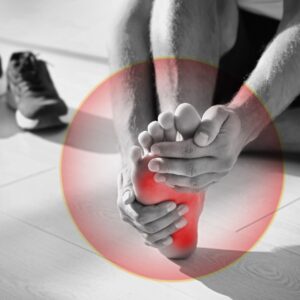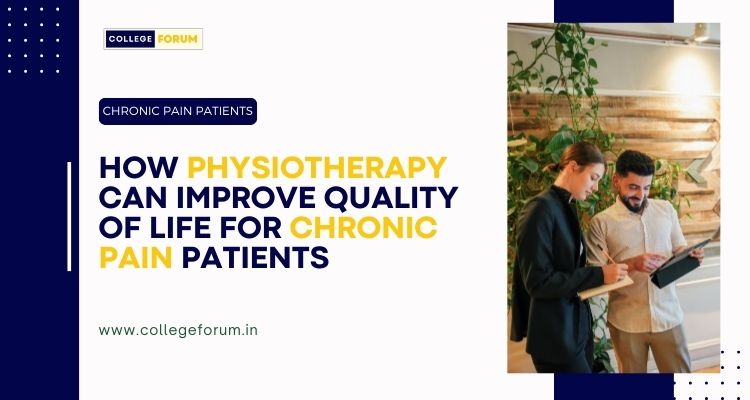Chronic pain is a pervasive issue affecting millions of people worldwide, significantly impacting their quality of life. Conditions such as arthritis, fibromyalgia, and back pain can lead to prolonged discomfort, reduced mobility, and psychological distress. Physiotherapy offers a holistic approach to managing these conditions, aiming to alleviate pain, improve physical function, and enhance overall well-being. This comprehensive guide delves into how physiotherapy can improve the quality of life for chronic pain patients, exploring various techniques and benefits.
Understanding Chronic Pain

Chronic pain is defined as pain that persists for more than three months, beyond the usual course of an acute illness or injury. Unlike acute pain, which serves as a warning signal of tissue damage, chronic pain is often considered a disease in itself. It can arise from various conditions, including:
- Arthritis: Inflammation of the joints causing pain and stiffness.
- Fibromyalgia: A condition characterized by widespread musculoskeletal pain, fatigue, and tenderness in localized areas.
- Chronic Back Pain: Persistent pain in the back, often due to degenerative conditions, injuries, or other underlying issues.
Chronic pain can severely limit daily activities, leading to physical deconditioning, mental health issues like depression and anxiety, and a reduced quality of life.
The Role of Physiotherapy in Managing Chronic Pain

Physiotherapy, also known as physical therapy, involves the use of physical methods such as exercise, manual therapy, and education to treat various conditions. For chronic pain patients, physiotherapy aims to:
- Alleviate Pain: Through targeted interventions that address the underlying causes of pain.
- Improve Mobility and Function: By enhancing strength, flexibility, and coordination.
- Educate Patients: On pain management techniques and lifestyle modifications to prevent exacerbations.
- Promote Psychological Well-being: By reducing the impact of pain on mental health and encouraging active participation in daily life.
Techniques Used in Physiotherapy for Chronic Pain Management

- Exercise Therapy
Exercise is a cornerstone of physiotherapy for chronic pain management. Tailored exercise programs can help strengthen muscles, improve flexibility, and enhance cardiovascular fitness. Specific types of exercise include:
- Aerobic Exercise: Activities like walking, cycling, and swimming can improve cardiovascular health and reduce pain sensitivity.
- Strength Training: Resistance exercises help build muscle strength, which can support joints and alleviate pain from conditions like arthritis.
- Stretching: Regular stretching exercises enhance flexibility, reduce stiffness, and improve range of motion.
- Low-impact Exercises: Activities such as yoga and Pilates can improve core strength, balance, and overall physical function.
Physiotherapists design individualized exercise plans based on the patient’s condition, fitness level, and goals. Regular exercise not only alleviates pain but also boosts mood and energy levels.
- Manual Therapy
Manual therapy involves hands-on techniques performed by physiotherapists to mobilize joints, soft tissues, and muscles. These techniques include:
- Massage Therapy: Helps relax muscles, improve circulation, and reduce pain and stiffness.
- Joint Mobilization and Manipulation: Techniques that restore joint movement and alleviate pain.
- Myofascial Release: Aims to release tension in the fascia (connective tissue) to improve movement and reduce pain.
Manual therapy can provide immediate pain relief and improve functional mobility, making it easier for patients to engage in daily activities and exercise.
- Electrotherapy
Electrotherapy uses electrical currents to stimulate nerves and muscles, offering pain relief and promoting tissue healing. Common electrotherapy modalities include:
- Transcutaneous Electrical Nerve Stimulation (TENS): Delivers low-voltage electrical currents to the skin, which can block pain signals and stimulate the release of endorphins (natural painkillers).
- Ultrasound Therapy: Uses high-frequency sound waves to promote tissue healing and reduce inflammation.
- Interferential Therapy (IFT): Uses medium-frequency electrical currents to reduce pain and inflammation.
These modalities can be particularly effective for conditions like arthritis and fibromyalgia, where inflammation and nerve pain are prominent.
- Education and Self-management Strategies
Education is a vital component of physiotherapy. Physiotherapists provide patients with information on their condition, pain mechanisms, and self-management strategies. Key educational topics include:
- Pain Neuroscience Education: Helps patients understand how pain works, which can reduce fear and anxiety associated with chronic pain.
- Activity Pacing: Techniques to balance activity and rest, preventing overexertion and flare-ups.
- Ergonomic Advice: Guidance on proper body mechanics and posture to minimize pain during daily activities.
- Lifestyle Modifications: Recommendations for weight management, nutrition, and sleep hygiene to support overall health and pain management.
Educated patients are more empowered to take an active role in their care, leading to better outcomes and improved quality of life.
- Cognitive Behavioral Therapy (CBT) Integration
Chronic pain is often associated with psychological distress, including depression, anxiety, and fear-avoidance behaviors (avoiding activities due to fear of pain). Integrating cognitive-behavioral strategies within physiotherapy can address these issues. Techniques include:
- Cognitive Restructuring: Identifying and challenging negative thought patterns related to pain.
- Relaxation Techniques: Methods such as deep breathing, progressive muscle relaxation, and guided imagery to reduce stress and pain perception.
- Goal Setting: Setting realistic, achievable goals to increase motivation and adherence to treatment.
By addressing the psychological aspects of chronic pain, physiotherapists can enhance the overall effectiveness of physical interventions.
Specific Conditions and Physiotherapy Approaches

- Arthritis
Arthritis, including osteoarthritis and rheumatoid arthritis, involves joint inflammation and degeneration, leading to pain, stiffness, and reduced mobility. Physiotherapy for arthritis focuses on:
- Pain Relief: Using modalities like TENS, ultrasound, and manual therapy.
- Joint Protection: Educating patients on techniques to reduce joint stress and prevent further damage.
- Strengthening: Exercises to build muscle strength around affected joints, providing better support and reducing pain.
- Range of Motion Exercises: To maintain and improve joint flexibility.
By addressing these aspects, physiotherapy can significantly enhance the quality of life for arthritis patients, enabling them to remain active and independent.
- Fibromyalgia
Fibromyalgia is characterized by widespread pain, fatigue, and tender points. Physiotherapy interventions include:
- Aerobic Exercise: Gentle, low-impact activities like walking or swimming to improve cardiovascular health and reduce pain.
- Strength Training: Light resistance exercises to build muscle endurance without exacerbating pain.
- Relaxation Techniques: Methods to reduce stress and improve sleep quality, which can influence pain perception.
- Patient Education: Information on managing symptoms and pacing activities to avoid flare-ups.
A comprehensive physiotherapy program can help fibromyalgia patients manage their symptoms, improve physical function, and enhance their quality of life.
- Chronic Back Pain
Chronic back pain is a common issue with various underlying causes, including disc problems, muscle strain, and degenerative changes. Physiotherapy approaches for chronic back pain include:
- Core Strengthening: Exercises to strengthen the muscles supporting the spine, improving stability and reducing pain.
- Postural Training: Education on proper posture and body mechanics to prevent strain on the back.
- Manual Therapy: Techniques to alleviate muscle tension and improve spinal alignment.
- Flexibility Exercises: Stretching routines to enhance flexibility and reduce stiffness.
By addressing the physical and functional aspects of chronic back pain, physiotherapy can provide long-term relief and improve patients’ ability to perform daily activities.
The Holistic Impact of Physiotherapy on Quality of Life

Physiotherapy offers a multifaceted approach to managing chronic pain, with significant benefits for overall quality of life. These benefits include:
- Pain Reduction: Through various physical interventions, patients experience reduced pain levels, allowing them to engage more fully in life.
- Improved Physical Function: Enhanced strength, flexibility, and mobility enable patients to perform daily tasks more easily and with less discomfort.
- Increased Independence: Better physical function leads to greater independence, reducing reliance on others for assistance.
- Enhanced Mental Health: Reducing pain and improving physical capabilities can alleviate anxiety, depression, and other psychological issues associated with chronic pain.
- Empowerment: Education and self-management strategies empower patients to take control of their condition, leading to a more active and fulfilling life.
Conclusion
Physiotherapy is a vital component in the management of chronic pain, offering a comprehensive approach that addresses physical, psychological, and educational needs. For conditions like arthritis, fibromyalgia, and chronic back pain, physiotherapy can significantly improve quality of life by reducing pain, enhancing mobility, and promoting mental well-being.
For students and patients seeking the best physiotherapy education and care, platforms like College Forum provide detailed information on top institutions. In Dehradun, several reputed colleges offer quality BPT programs, equipping future physiotherapists with the skills needed to make a positive impact on patients’ lives.
By understanding and leveraging the benefits of physiotherapy, chronic pain patients can lead more active, independent, and fulfilling lives, free from the limitations imposed by persistent pain.

